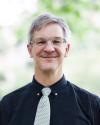Guest lecturer Lauri Õunapuu told a legend about how this instrument, the kannel, protected a musician from the Plague. (to be discussed in week 5!)
Scand/CompLit 230: Introduction to Folklore Studies
Autumn Quarter 2020
(click here for printable syllabus: docx or pdf)
Instructor: Guntis Šmidchens, guntiss@uw.edu; Office Hours: MW before and after class, and by appointment
First class meeting live (synchronous)
Wednesday, September 30, 12:30-2:20 pm (Seattle time, PST)
A Zoom link will be posted on Canvas.
Please log in early, to make sure the connection is working.
Problems getting into the meeting? Write to help@uw.edu
-
On the first day of class (Wednesday Sept 30), the class meets online for the whole two hours, 12:30-2:20 pm (Seattle time, PST). A Zoom link will be posted in the Modules section of the Canvas website.
-
On all other days, the meeting time is split into two parts:
12:30-1:20 – Optional “open office hours” (see below).
1:20-2:20 – Required live (synchronous) meeting.* A recording will be available in Canvas.
- During “open office hours” (12:30-1:20), the online meeting room is open. You may…
- drop in for questions/discussion about the class, the weather, etc.;
- or use this hour to watch the recorded lectures (see below);
-
or prepare for the live meeting at 1:20.
- There will also be two recorded (asynchronous) lectures per week, to be viewed before the live meetings.
Course Description
Folklore Studies combines the methods and ideas of Anthropology and Literature Studies
A folklorist is interested in describing and understanding living people and their traditions. Every item of folklore (a story, song, custom, or material culture) exists in variants: As it passes from person to person, from generation to generation, from place to place, folklore adapts to new contexts.
This class will focus on traditional literature:
- Folktales (sometimes called fairy tales) have existed for thousands of years. The Brothers Grimm started the academic study of tales in 1812. Since then, many of the world's leading thinkers have been attracted to tales. We will survey two hundred years of ideas about this, the oldest and most widespread form of literature in the world. We will encounter classic tales as retold from Greek Antiquity to current American films.
- Legends are also both old and new. Stories about ghosts and the supernatural world; rumors about witches and demons among us (Slender Man!!); urban legends about alligators in city sewers... Legends are tightly bound to human beliefs and worldviews.
- Traditional poetry. Proverbs are short traditional poems that encapsulate deep, powerful advice. Longer poems, songs, may be familiar as "Happy Birthday" or as foreign as the long mythological epic poem from Finland, Kalevala, which inspired Tolkien's "Lord of the Rings".
Folklore has existed since humans began talking many thousands of years ago...
It is widespread, performed by millions of humans in all of the world's cultures.
But it is usually overlooked, trivialized, or marginalized in "serious" study of literature and culture. This course will add an alternate perspective: Because folklore is common, widespread, and long lived, it is THE KEY to understanding who human beings are!
Course Objectives
- Learn classic examples of folklore: folktales such as “Cinderella” and “Dragonslayer” along with their variants; legends about witches, ghosts, and folk heroes; the Finnish epic “Kalevala” and Lithuanian “dainos” (songs), etc.
- Learn classic interpretations and research methods related to the above examples. How did the great folklorists, Grimm, Aarne, Thompson, Hurston, Dorson, Dégh, Wiggins, Brunvand and others analyze folklore?
- DO folklore studies: Collect traditional stories and an oral poem. Transcribe oral texts, and add the contextual information that will make them come alive for future readers of your essays.
Grade
- 25% Weekly online multiple choice/short answer quizzes (open book).
- 25% Contributions to class discussions: one assigned post and four peer review/responses to classmates' written assignments (this requirement combines two items formerly separated on the class syllabus).
- 50% Four writing assignments, revised and submitted as a portfolio.
Required Readings
- Lynne S. McNeill, Folklore Rules: A Fun, Quick, and Useful Introduction to the Field of Academic Folklore Studies. Utah State University Press, 2013 [e-book in the UW Library]
- Selected chapters in Alan Dundes, ed., International Folkloristics (Oxford: Rowman & Littlefield, 1999) [e-book at UW Library]
- Other readings to be announced soon, available online or uploaded to the class website
___________________________________
*Washington state law requires that UW develop a policy for accommodation of student absences or significant hardship due to reasons of faith or conscience, or for organized religious activities. The UW’s policy, including more information about how to request an accommodation, is available at Religious Accommodations Policy. Accommodations must be requested within the first two weeks of this course using the Religious Accommodations Request form.
